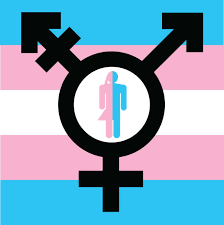Transitioning through different phases of life can be a profound experience, whether it’s changing jobs, moving to a new city, or even undergoing a personal transformation. Understanding what transition means for you is crucial in navigating this often tumultuous journey. In this article, we’ll explore the various aspects of transition, from preparation to the emotional aftermath, offering insights and strategies to make the process smoother.
Understanding Transition: What It Means for You
Transition is more than just a change; it’s a process that involves significant shifts in your life. It can encompass anything from a job change to a lifestyle alteration. The key to understanding transition is recognizing that it doesn’t happen overnight. It’s a journey that often requires emotional and mental adjustments as you move from one state of being to another. Every transition is unique, shaped by individual experiences, background, and expectations. Forced Fem HypnoMtf Hrt Before And After Pictures
In this context, understanding your personal definition of transition is vital. It’s about assessing the changes you’re facing, how they impact your life, and what they mean for your future. Taking the time to reflect on these factors can help you approach your transition with a clearer mindset, allowing for a more intentional journey.
The Journey Begins: Preparing for Change
Preparation is foundational to any successful transition. This process often starts with self-reflection—taking the time to consider what changes are occurring and how they align with your personal goals. By setting realistic expectations and identifying the challenges ahead, you can create a roadmap for your journey. Make a list of things you want to accomplish and prioritize them based on urgency and importance.
As you prepare, don’t forget to gather resources and information that can aid you during this time. Whether it’s seeking out educational materials, attending workshops, or connecting with mentors, being proactive about your transition can empower you to face it head-on. Preparation is not just about gathering information but also about mentally gearing yourself up for what is to come.
The Emotional Rollercoaster: What to Expect
Expecting a whirlwind of emotions during a transition is perfectly normal. You might experience excitement, anxiety, fear, and even relief all at once. This emotional rollercoaster can be overwhelming, especially when you’re trying to adapt to new circumstances. It’s important to recognize that these feelings are valid and that you aren’t alone in your experience.
Understanding the emotional stages of transition can help you navigate them better. Feelings of doubt and uncertainty can creep in, but by acknowledging your emotions and allowing yourself to feel them, you can work through them more effectively. Journaling or talking to trusted friends can provide a safe space to express your feelings, helping to alleviate some of the emotional burdens you may carry.
Key Strategies for a Smoother Transition
To make your transition smoother, consider implementing a few key strategies. First, set small, achievable goals that can guide you through the process. Breaking larger objectives down into manageable steps reduces feelings of overwhelm and gives you a sense of accomplishment as you progress. Celebrate these small wins to maintain motivation.
Secondly, stay flexible in your approach. Not everything will go according to plan, and being adaptable can help you handle unexpected challenges more gracefully. Embracing change rather than resisting it allows you to flow with the circumstances rather than against them, making the journey easier and more enjoyable.
Life After Transition: Embracing the New You
Once you’ve navigated through the initial stages of transition, it’s time to embrace your new reality. Life after a transition often feels different, and that’s completely okay. It’s an opportunity to redefine yourself and explore new possibilities. Take the time to enjoy the fruits of your effort and recognize how far you’ve come.
Embracing the new you means being open to change and willing to adapt your identity. This can involve trying new activities, meeting new people, or even learning new skills. Celebrate your evolution and remind yourself that this new chapter in your life is an opportunity for growth and self-discovery.
Common Challenges: Navigating the Aftermath
Post-transition challenges are common and can vary widely. You may find yourself grappling with feelings of insecurity, isolation, or uncertainty about your future. These feelings can lead to self-doubt and an internal struggle to find your footing in your new circumstances. Recognizing these challenges ahead of time can prepare you for the emotional ups and downs that may come.
Another challenge can be the pressure to immediately feel “settled” or “normal.” Understand that adjusting to change takes time, and it’s okay to feel out of place for a while. Allow yourself the grace to navigate this period without undue pressure. Each step you take, no matter how small, is part of your adaptation process.
Support Systems: Finding Your Tribe
Building a robust support system is crucial during transitions. Surround yourself with individuals who uplift and encourage you—friends, family, or even support groups with similar experiences. Having people to share your journey with makes the process less lonely and provides a network of encouragement when times get tough.
Don’t hesitate to reach out and ask for help when needed. Whether it’s seeking advice or simply needing someone to listen, knowing that you have a support system can significantly ease the burden of your transition. Remember, it’s not a sign of weakness to lean on others; it’s a strength that fosters connection and understanding.
Celebrating Success: Reflecting on Your Journey
As you navigate through your transition, it’s essential to take moments for reflection. Celebrate your successes, no matter how small, and recognize the effort you put into adapting to change. Reflection helps you appreciate how far you’ve come and reinforces the positive aspects of your journey.
Consider keeping a journal or creating a vision board that captures your milestones and achievements. This visual representation can serve as a powerful reminder of your resilience and the new opportunities that lie ahead. Celebrating your journey is an essential part of moving forward and embracing the next chapter of your life.
Transitioning can be an emotional and challenging journey, but it’s also a powerful opportunity for growth and self-discovery. By preparing for change, understanding the emotional ups and downs, and building a supportive network, you can confidently navigate this significant phase of your life. Remember to celebrate your achievements and embrace the new you, as every transition brings with it a chance to redefine who you are and where you’re headed.


